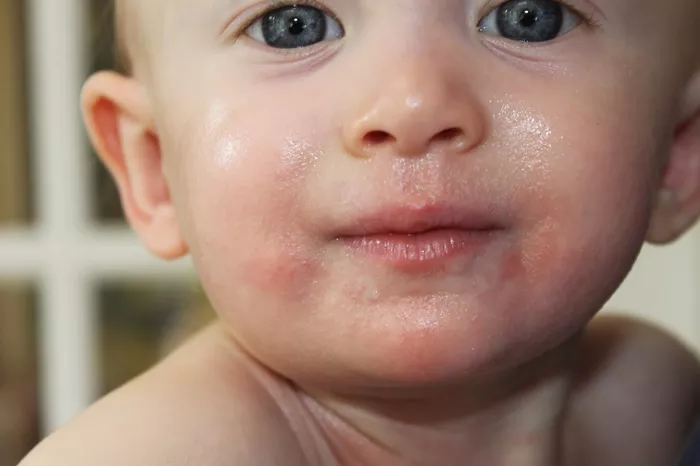Fixation, an intense preoccupation with a single subject or idea, can profoundly affect an individual’s daily functioning and quality of life. This symptom is often associated with various mental illnesses, and understanding its underlying causes and manifestations is crucial for both clinical practice and public awareness. This article delves into the mental illnesses that can cause fixation, exploring their symptoms, underlying mechanisms, and treatment approaches.
Understanding Fixation
Fixation, in the context of mental health, refers to an obsessive focus on a particular thought, idea, or activity. This can range from repetitive thoughts and compulsive behaviors to an unwavering preoccupation with specific themes or subjects. Fixation can be debilitating, leading to significant distress and impairment in social, occupational, and other areas of functioning.
Types of Fixation
Fixations can manifest in various ways, including:
Obsessions: Persistent, intrusive thoughts that are distressing and challenging to control.
Compulsions: Repetitive behaviors or mental acts performed to reduce the anxiety associated with obsessions.
Perseveration: Repetition of a particular response, such as a word, phrase, or gesture, despite the absence or cessation of a stimulus.
Rumination: Continuous, repetitive thinking about negative or distressing topics.
1. Obsessive-Compulsive Disorder (OCD)
Symptoms and Characteristics
Obsessive-Compulsive Disorder (OCD) is one of the primary mental illnesses associated with fixation. Individuals with OCD experience recurrent, unwanted thoughts (obsessions) and engage in repetitive behaviors (compulsions) in an attempt to alleviate the distress caused by these obsessions.
Common obsessions include fears of contamination, fears of harming oneself or others, and intrusive sexual or religious thoughts. Compulsions often involve washing, checking, counting, or repeating actions to neutralize the obsessions.
Underlying Mechanisms
The exact cause of OCD is not fully understood, but it is believed to result from a combination of genetic, neurobiological, and environmental factors. Neuroimaging studies have shown abnormalities in the orbitofrontal cortex, anterior cingulate cortex, and striatum of individuals with OCD, suggesting dysfunction in the brain circuits involved in habit formation and the regulation of anxiety.
Treatment Approaches
Effective treatments for OCD include Cognitive-Behavioral Therapy (CBT), particularly Exposure and Response Prevention (ERP), and medications such as selective serotonin reuptake inhibitors (SSRIs). ERP involves gradually exposing individuals to feared situations while preventing the accompanying compulsive behavior, helping them learn that their anxiety will diminish over time without the need for compulsions.
2. Autism Spectrum Disorder (ASD)
Symptoms and Characteristics
Fixation is also a hallmark of Autism Spectrum Disorder (ASD). Individuals with ASD often exhibit intense interests and repetitive behaviors. These fixations can be on specific topics, objects, or activities, such as an obsession with trains, numbers, or particular routines.
Underlying Mechanisms
The causes of ASD are multifaceted, involving genetic and environmental influences. Neurodevelopmental differences, including variations in brain connectivity and structure, contribute to the characteristic symptoms of ASD. Studies have shown atypical functioning in the prefrontal cortex and abnormalities in the connectivity between different brain regions in individuals with ASD.
Treatment Approaches
Interventions for ASD typically include behavioral therapies, such as Applied Behavior Analysis (ABA), which focuses on increasing desired behaviors and reducing problematic ones. Other approaches include speech and occupational therapy, social skills training, and, in some cases, medications to manage specific symptoms like anxiety or hyperactivity.
3. Attention-Deficit/Hyperactivity Disorder (ADHD)
Symptoms and Characteristics
Attention-Deficit/Hyperactivity Disorder (ADHD) is another condition where fixation can occur, particularly in the form of hyperfocus. Hyperfocus refers to an intense concentration on a single activity or task, often to the exclusion of other important activities.
Individuals with ADHD may become so engrossed in activities that they lose track of time and neglect other responsibilities. This can be seen in both children and adults, affecting their academic, professional, and personal lives.
Underlying Mechanisms
ADHD is believed to arise from a combination of genetic, neurobiological, and environmental factors. Neuroimaging studies have identified abnormalities in the structure and function of the prefrontal cortex, basal ganglia, and other brain regions involved in attention and impulse control.
Treatment Approaches
Treatment for ADHD often involves a combination of medication and behavioral therapy. Stimulant medications, such as methylphenidate and amphetamines, arecommonly prescribed and can help improve focus and reduce impulsivity. Behavioral interventions may include organizational skills training, behavior modification techniques, and psychoeducation.
4. Schizophrenia and Other Psychotic Disorders
Symptoms and Characteristics
Fixation can also be a feature of schizophrenia and other psychotic disorders. Individuals with schizophrenia may experience delusions, which are fixed, false beliefs that are resistant to reason or contrary evidence. These delusions can become the central focus of the individual’s thoughts and behaviors.
In addition to delusions, individuals with schizophrenia may exhibit perseverative speech and behavior, reflecting a difficulty in shifting attention from one idea or task to another.
See Also: What Is the Cross Trainer Good For?
Underlying Mechanisms
Schizophrenia is a complex disorder with a multifactorial etiology, involving genetic predisposition, neurodevelopmental abnormalities, and environmental stressors. Neuroimaging studies have revealed structural and functional abnormalities in the prefrontal cortex, hippocampus, and other brain regions involved in cognitive processing and reality testing.
Treatment Approaches
Treatment for schizophrenia typically involves antipsychotic medications, which can help reduce the severity of delusions and other psychotic symptoms. Psychosocial interventions, including cognitive-behavioral therapy, social skills training, and supported employment programs, are also important in improving overall functioning and quality of life.
5. Post-Traumatic Stress Disorder (PTSD)
Symptoms and Characteristics
Post-Traumatic Stress Disorder (PTSD) can involve fixation on the traumatic event, with individuals experiencing intrusive memories, flashbacks, and nightmares. This preoccupation can interfere with daily life and lead to avoidance of reminders of the trauma.
Individuals with PTSD may also engage in hypervigilance and exaggerated startle responses, constantly scanning their environment for potential threats, which reflects a fixation on safety and danger.
Underlying Mechanisms
PTSD results from exposure to a traumatic event, with subsequent neurobiological changes that affect the individual’s stress response. Studies have shown alterations in the functioning of the amygdala, hippocampus, and prefrontal cortex, which are involved in the processing and regulation of emotions and memories.
Treatment Approaches
Effective treatments for PTSD include trauma-focused psychotherapies, such as Cognitive Processing Therapy (CPT) and Eye Movement Desensitization and Reprocessing (EMDR). These therapies aim to help individuals process and integrate traumatic memories, reducing their emotional impact. Medications, such as SSRIs and selective serotonin-norepinephrine reuptake inhibitors (SNRIs), can also be helpful in managing symptoms of anxiety and depression associated with PTSD.
6. Body Dysmorphic Disorder (BDD)
Symptoms and Characteristics
Body Dysmorphic Disorder (BDD) is characterized by an obsessive preoccupation with perceived defects or flaws in one’s appearance, which are often not noticeable to others. Individuals with BDD may spend excessive time checking mirrors, grooming, or seeking reassurance about their appearance.
This fixation on appearance can lead to significant distress and impairments in social, occupational, and other areas of functioning.
Underlying Mechanisms
The exact causes of BDD are not fully understood, but it is believed to involve a combination of genetic, neurobiological, and psychological factors. Neuroimaging studies have indicated abnormalities in the visual processing regions of the brain, as well as in areas involved in emotional regulation and body perception.
Treatment Approaches
Cognitive-Behavioral Therapy (CBT) is the most effective treatment for BDD, particularly when it includes components of exposure and response prevention. This therapy helps individuals confront and reduce their compulsive behaviors related to appearance. Medications, such as SSRIs, can also be beneficial in reducing obsessive thoughts and associated anxiety.
7. Anorexia Nervosa
Symptoms and Characteristics
Anorexia Nervosa is an eating disorder characterized by an intense fear of gaining weight and a distorted body image, leading to severe restriction of food intake and excessive weight loss. Individuals with anorexia may become fixated on food, calories, and body weight, often engaging in ritualistic behaviors related to eating and exercise.
Underlying Mechanisms
Anorexia Nervosa is thought to arise from a complex interplay of genetic, biological, psychological, and environmental factors. Neuroimaging studies have shown abnormalities in brain regions involved in reward processing, body perception, and cognitive control.
Treatment Approaches
Treatment for Anorexia Nervosa typically involves a multidisciplinary approach, including medical, nutritional, and psychological interventions. Cognitive-Behavioral Therapy (CBT) and Family-Based Treatment (FBT) are commonly used psychotherapeutic approaches. In severe cases, hospitalization may be necessary to address malnutrition and other medical complications.
Conclusion
Fixation is a symptom that can manifest across a variety of mental illnesses, each with its own unique set of characteristics and underlying mechanisms. Understanding the specific ways in which fixation presents in different disorders is crucial for effective diagnosis and treatment.
[inline_related_posts title=”You Might Be Interested In” title_align=”left” style=”list” number=”6″ align=”none” ids=”9995,9883,9783″ by=”categories” orderby=”rand” order=”DESC” hide_thumb=”no” thumb_right=”no” views=”no” date=”yes” grid_columns=”2″ post_type=”” tax=””]































